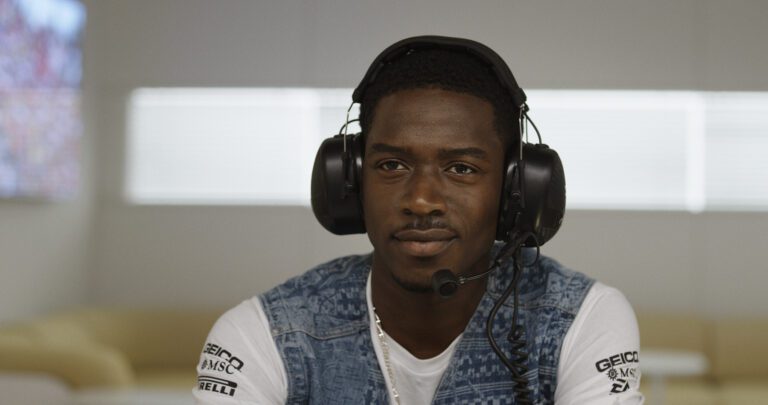Let’s quickly set the scene. Things are happening for you. You’ve worked hard on your craft, lined up an agent and/or manager, been submitted for jobs, and now, the auditions are pouring in fast and furious.
Thanks to all this new activity, and the current state of submitting self tapes for acting jobs, you’re creating tapes for all the right casting people. As the actor, you do the hard part by embodying your characters — getting into their headspace, nailing the accent and locking in on a performance that feels believable, authentic and convincing.
So, here’s my question:
Why would you grab the first person standing to your left to read lines with you on tape?
It sounds ridiculous, but it’s a mistake many actors make: reading lines with someone who doesn’t do it very well.
Given the uptick in self tapes and virtual auditions, it’s understandable that some of us are making the best of what’s in front of us. Having a subpar reader to run dialogue with doesn’t help your case — and more importantly, can prevent you from getting a job and the income you need from the pursuit.
But don’t take it from me.
Alexis Koczara, a long-time casting director and partner at Koczara/Shevchenko Casting, has cast Emmy-nominated series like ABC’s Black-ish and Netflix’s Cobra Kai. Koczara watches hundreds of self tapes per week and says, “Having a good reader is the best way to set yourself up for success.”
Considering that reality, here are seven things that talent should be cognizant of when it comes to choosing their reader:
They should be good enough to not be a distraction.
The reader’s number one job is to be seamless, subdued and bring out the best in talent. They should never appear to be campaigning for an Oscar for “Best Offscreen Read by a Faceless Entity.”
Koczara says it’s the job of casting people to pay attention to the talent, not the reader — so the reader should be focused on making the talent comfortable rather than being a focal point. She says, “You want the reader to contribute to the scene, but not be overpowering.”
Personally, my first paid job out of college was as a set production assistant on the 1997 film U-Turn. One of my tasks was reading lines with talent such as Jennifer Lopez, who I did a scene with on the other end of a filmed phone call (I’m happy to report she didn’t fumble her read on my account). At the time, I understood the stakes, context and tone that needed to be struck so the actor on camera could stay in the right headspace. Do the same — they will thank you for it.
Use an actor friend.
You’re an actor, so surely you have friends who understand what it takes to execute a self tape.
Be they aspiring or established, your network of fellow thespians is a great place to start to find a qualified reader. They know how to read and as such, would be more apt to “give you something to read against — not something that is monotone or flat,” says Koczara.
They’re trained in what you’re doing, so they can even give an honest assessment about which read was your best.
As a thank you, you can return the favor when it’s their time to shine.
Give the reader the sides ahead of time.
Just like actors need time to prep, your reader does as well. Give them a moment to read through their lines — to get the dialogue and world of the scene down.
I’ve read with clients of The Rosenzweig Group on many occasions, playing everything from a cop to a pregnant woman. I’ve always done better when I had time with the sides beforehand to highlight my lines and to get the beats of a scene down.
“Read the scenes a couple of times in advance,” Koczara says. “It will help the reader give more eye contact and that connection is important” to an actor doing a scene.
Give them direction so they don’t pull you out of a scene.
As the actor, you know how you work and what you need from a reader to put your best self on tape. You know to choose someone who won’t go too big with it — or spend time in and out of accents while doing their best impression of whatever gender is on the page. But you should also feel free to give them direction that will save them from ruining the take you liked best.
Perhaps there’s a line they’re reading that’s throwing you off or too many dramatic pauses. Give them a friendly director’s note (or two) upfront and you’ll always start from the best place.
Ask the reader to never take it back by themselves.
After chatting with The Rosenzweig Group client Gregg Wayans recently, he mentioned that one of his past readers would actually say “Cut!” to a scene if they stumbled on a line. The only problem was that he was in the zone.
Tell the reader to keep going if they mess up a line. That may be the take that separates you from the pack. Plus, casting directors like Koczara don’t mind it. “It doesn’t bother me when a reader flubs, I’m more focused on what the actor has to say.”
Tone is important.
In a reader, you want someone who gets the nature of the material, and ideally, if it’s for TV or streaming, is familiar with the show.
“Tone is important for an audition,” Koczara reveals. “If the reader knows the tone of the show, it’ll give the actor what they need. This is specifically important for comedy and multi-camera shows, where timing is important and you’re looking to hit the joke very hard.”
If you’ve got a few favorite readers in your arsenal to choose from, their knowledge of the required tone is something to consider.
Bottom line: the last thing you want your reader to do is evoke Black Mirror — if they should be going for Black-ish.
Finally, a live reader always works best.
Given the proliferation of self tapes over in-person auditions, there’s been a trend toward actors reading against recordings of themselves. It’s not the preference of casting people, generally, as it can throw the actor off as well as the person watching the tape.
“I don’t like it at all,” concludes Koczara. “It’s not an ideal way to audition. It feels less about the performance versus getting their lines in between the recorded lines. It’s always better to use a live person.”
There are plenty of strike-compliant roles available on Casting Networks. Sign up or log in and see what’s casting near you today!
You may also like:













